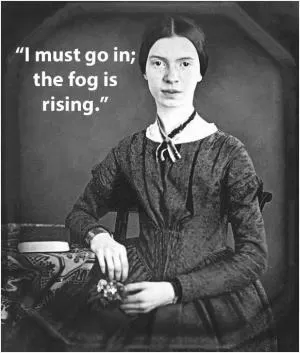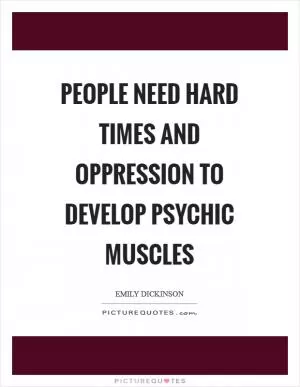After great pain, a formal feeling comes. The nerves sit ceremonious, like tombs

After great pain, a formal feeling comes. The nerves sit ceremonious, like tombs
Emily Dickinson, one of the most renowned American poets, is known for her unique style and profound exploration of themes such as death, nature, and the human experience. In her poem "After great pain, a formal feeling comes," Dickinson delves into the aftermath of intense emotional suffering and the numbness that follows.The opening line of the poem, "After great pain, a formal feeling comes," immediately sets the tone for the rest of the piece. The word "formal" suggests a sense of detachment or distance, as if the speaker is observing their own emotions from a removed perspective. This detachment is further emphasized in the following line, "The nerves sit ceremonious, like tombs." Here, Dickinson uses the image of nerves as tombs to convey the sense of stillness and emptiness that follows intense pain. The comparison to tombs also evokes a sense of finality and closure, as if the speaker's emotions have been buried and sealed away.
Throughout the poem, Dickinson explores the aftermath of emotional trauma and the ways in which it can leave a person feeling numb and disconnected from their own feelings. The speaker describes a sense of "quartz contentment" that follows the pain, suggesting a cold, hard surface that masks the deeper emotions underneath. This numbness is further emphasized in the lines, "This is the Hour of Lead – / Remembered, if outlived." The reference to lead, a heavy and dense metal, conveys the weight of the emotional burden that the speaker carries with them even after the pain has passed.
Overall, Dickinson's poem "After great pain, a formal feeling comes" offers a poignant exploration of the aftermath of intense emotional suffering and the ways in which it can leave a person feeling detached and numb. Through her vivid imagery and evocative language, Dickinson captures the complex and often contradictory nature of human emotions, shedding light on the ways in which we cope with pain and loss.












 Friendship Quotes
Friendship Quotes Love Quotes
Love Quotes Life Quotes
Life Quotes Funny Quotes
Funny Quotes Motivational Quotes
Motivational Quotes Inspirational Quotes
Inspirational Quotes